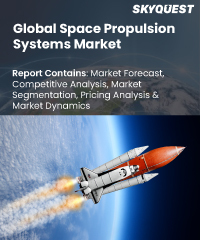
Report ID: SQMIG20A2146
Skyquest Technology's expert advisors have carried out comprehensive research and identified these companies as industry leaders in the Space Propulsion Systems Market. This Analysis is based on comprehensive primary and secondary research on the corporate strategies, financial and operational performance, product portfolio, market share and brand analysis of all the leading Space Propulsion Systems industry players.
The Global Space Propulsion Systems Market is characterized by intense competition among established players and the emergence of new entrants with innovative technologies. Leading companies focus on continuous innovation and technological advancements to enhance propulsion system performance, efficiency, and reliability. They also emphasize collaborations with space agencies and commercial customers to secure contracts for satellite launches, deep space exploration missions, and other space-related projects. Additionally, startups and smaller companies, such as Rocket Lab, Blue Origin, and Relativity Space, are disrupting the market with their novel propulsion technologies and agile business models. The competitive landscape is expected to witness further intensification as companies strive to gain a competitive edge by offering greener propulsion solutions, developing reusable systems, and exploring new frontiers in space exploration.
Space Propulsion Systems Market Top Player’s Company Profile
REQUEST FOR SAMPLE
Want to customize this report? This report can be personalized according to your needs. Our analysts and industry experts will work directly with you to understand your requirements and provide you with customized data in a short amount of time. We offer $1000 worth of FREE customization at the time of purchase.
Feedback From Our Clients

Report ID: SQMIG20A2146
sales@skyquestt.com
USA +1 351-333-4748